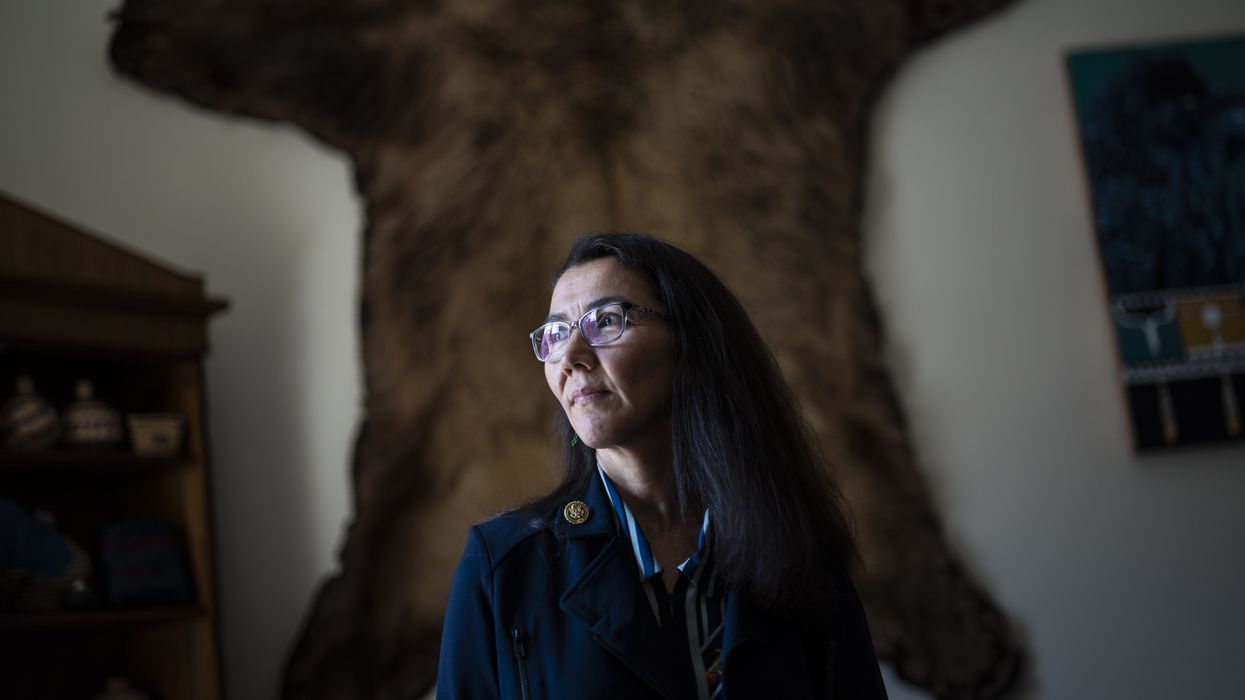Palmer is chairman of Rank the Vote and a member of the board of the National Association of Nonpartisan Reformers.
Beyond being kidney-punched in the Capitol or censured by colleagues, the biggest threat a compromise-minded member of Congress faces these days comes from a primary election challenge. Being “primaried” for displaying insufficient partisanship is the quickest route out of Congress. The prime example is former Rep. Liz Cheney, the one-time GOP darling who crossed her Trump-dominated party and failed to win her renomination bid by a 2-to-1 margin.
Thanks to gerrymandered congressional districts, the winner of the favored party’s primary is assured a general election victory in all but about 10 percent of House races. Worse, primaries are low-turnout embarrassments for democracy that favor extremist elements in the party. When first elected to Congress in 2016, Republican firebrand Matt Gaetz received votes from just 7 percent of his Florida district’s voters in the GOP primary. But that was all he needed for a resounding general election win in his ruby-red district. Similarly, in her first congressional election in 2018, far-left Democrat Alexandria Ocasio-Cortez's easy win in November came after she won a low-turnout primary with the support of less than 5 percent of the registered voters in her district.
Fortunately, there is a novel solution to lessen the Grand Canyon of space between our two polarized parties. Alaska’s system – passed by a ballot initiative in 2020 – features nonpartisan primaries and instant-runoff general elections, and it marks a first in American elections. All candidates for state and federal office appear on the same nonpartisan ballot, regardless of party. The top four vote-getters advance to the general election, where ranked-choice voting determines the winner.
The results from the model’s 2022 debut were encouraging. The nationally newsworthy winners were Republican Sen. Lisa Murkowski, whom former President Donald Trump vocally tried to have challenged in the primary, and Democratic Rep. Mary Peltola. Both are considered centrists and prevailed over the more extreme candidates who likely would have won in the old system.
Intraparty competition came out of the shadows of closed partisan primaries into the limelight of the (higher-turnout) general elections in down-ballot races as well. In six different stateSenate races, two Republicans advanced to face each other in November. Independents, Democrats and other non-Republicans played a part in determining the winners, benefitting the more moderate candidates. The right-leaning think tank R Street assessed that the winner in each of these six contests would have lost in a Republican-only primary.
The new Alaskan playing field is also more level for independent or minor-party candidates. While third or fourth candidates are typically shouted down as “spoilers” in most American elections (witness reaction to Robert F. Kennedy, Jr.’s independent presidential efforts and Democratic Sen. Joe Manchin’s “No Labels” flirtation), Alaska’s instant-runoff approach silences the “wasted vote” argument. Encouragingly, six independents won seats in the Alaska State Legislature in 2022.
Lastly, analysts report that 44 percent more Alaska races had competitive margins and that half as many candidates ran unopposed compared to the prior election cycle. The upshot is that more moderate candidates won in Alaska in 2022 and more Alaskans’ votes mattered.
What happened once these legislators elected arrived in Juneau and Washington, D.C., is even more important: They no longer were looking over their shoulder at the prospect of primary challenges. Knowing they would face all voters in their next primary – not just the most devout partisans – they knew they needed to answer the question “How are you serving your district?” rather than “Are you keeping party bosses happy?”
Other states are taking notice of Alaska’s innovation. Nevada has taken the first step to copy Alaska’s approach, passing in 2022 a “Final Five Voting” initiative. (It needs to pass again in 2024 to comply with Nevada’s constitutional rules.) And in Colorado, businessman-turned-reformer Kent Thiry has just announced he will lead an effort to put a referendum similar to Alaska’s on the ballot. Credible nonpartisan primary reform efforts are also under way in Arizona, Idaho and Wisconsin.
The hope among those of us supporting primary reform is that Alaska’s new system will continue to produce less-polarized lawmakers who will in turn be able to work together more effectively to advance public policy. There’s also hope that it levels the playing field for those running from outside the two major parties. While it’s early yet to assess the impact of a voting innovation in one thinly populated state, we can scarcely do worse than the gridlocked insanity of the status quo in Washington. Isn’t it time we shake things up in the Lower 48 as well?




















Trump & Hegseth gave Mark Kelly a huge 2028 gift